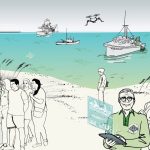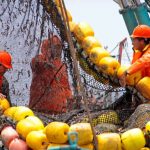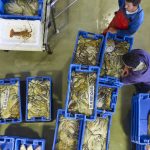IFAW and NOAA have decided to support two research projects aimed at new technologies that could help protect the region’s large whales from entanglement in fishing gear. The grant for the work has been given to the Provincetown Center for Coastal Studies and the University of New Hampshire respectively. Patrick Ramage, IFAW Global Whale Program Director, informed that the two iconic species in our region face unprecedented threats: whales and commercial fishermen.
Ramage also opined that the new technology developed through this initiative will, hopefully, benefit both. He told that all at IFAW are proud to be partnering with the fishing industry and government agencies to promote solutions that benefit animals and people. Mary Colligan, NOAA Northeast assistant regional administrator for protected resources, told that entanglements are rarely documented as they are occurring, so we need to gather other data to help us understand when, where and how they happen. That way the protective measures could be adjusted accordingly. She claimed that these projects are promising and we look forward to the results.
It is said that the Provincetown Center for Coastal Studies will develop coded wire tags that would be embedded into fishing line used on the gear known to entangle whales, primarily pot/trap and sink gillnet. The work will be carried out in cooperation with the Massachusetts Division of Marine Fisheries (MADMF), and Northwest Marine Technologies (NMT).
The University of New Hampshire’s Zoology Department will develop a system for remote, real-time tracking of fishing gear location. The system would use a radio frequency identification (RFID) scheme and global positioning system (GPS). If successful, this could provide substantial new information on fishing patterns–how much gear is set, when, and where. For this the UNH team will partner with Blue Water Concepts of Maine to develop this innovative technology.








